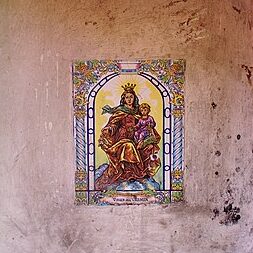Two Poems from Small Sargassum Mountains / Pequeñas Cordilleras de Sargazo
by Antonio Ochoa
The first expression of my thoughts and feelings is in Spanish, and I write in Spanish. But I haven’t lived in Mexico for over twenty years. I wanted to share my work with my family and friends in the United States who are native English speakers. And so, one evening I decided to attempt the translation of a manuscript. The result of that experiment has transformed my writing and the understanding of the way my mind works. The word “transcreation” was coined by Brazilian concrete poet Haroldo de Campos to signify the creative and critical engagement of the translator with the original text. I’m borrowing this term since I cannot think of a better one for the work that I have been doing for the past couple of years. During the translation of the manuscript mentioned above, as I was rendering the Spanish text into English, I would let myself get carried away adding new elements directly into the English version. I then retraced my steps and translated the new material into the Spanish original, where sometimes the new elements added called for clarifications, additions, changes in punctuation, word choices, and the reworking of some partial or whole paragraphs. In this way, elements from both languages started complementing each other, adding, clarifying, extending, and deepening both texts in an open-ended stream. This is why I borrow De Campos’s word “transcreation,” even though the creative and critical engagement during the act of translation was not with another poet’s words but my own.
-Antonio Ochoa
[untitled]
El toro ladea la cabeza hasta que las guirnaldas que cuelgan de sus cuernos tocan
el pavimento de la calle atento a los cantos de los pinzones que brincan por el
callejón del Aguacate. Cinco niños en pantalones cortos suben corriendo las
escaleras de caracol que pasan por el objetivo hasta llegar más allá del visor de la
cámara de su padre. En esa casa hay un jardín lleno de patos. Con todas sus alas
juntas detonan el disparador. Lejos de ahí, junto al castillo de Edimburgo, un
zorrito blanco se protege de la descarga enroscándose entre la muralla y un abeto,
pensando en el padre de Debussy quien fue arrestado en 1871 por participar en la
Comuna.
The bull tilts its head until the garlands that hang from its horns touch the street’s
pavement, paying attention to the finches singing and hoping around in the
Aguacate ally. Five boys in shorts run up the spiral stairs that pass through the
lens and reach beyond the viewfinder of their father’s camera. In that house there
is a garden full of ducks. With all their wings together they press the shutter. Far
from there, next to Edinburgh castle, a small white fox curls up between the wall
and a fir tree to protect itself from the discharge, remembering that Debussy’s
father was arrested in 1871 for taking part in the Commune.
[untitled]
Desde el centro de la espiral emana una luz naranja de donde salen múltiples
brazos y de cada brazo salen varias manos y de cada dedo de cada mano
despuntan múltiples dedos pequeños. Cada uno señala a un sol distinto. La deixis
es el razonamiento que cruza la distancia entre los dedos dejando un residuo que
va depositándose en las sílabas. Sentados en una banca en la plaza de Santa
Catarina una tarde a fines de agosto señalaste con el índice la luz que caía en las
paredes amarillas de la capilla.
From the center of the spiral emanates an orange light from where multiple arms
extend and from each one grow multiple hands, and from each finger of each
hand shoot multiple small fingers. Each one of these points to a different sun.
Deixis is the reasoning that crosses the distance between fingers leaving a residue
that begins to accumulate on the syllables. Sitting on a bench in the Santa
Catarina square, one afternoon at the end of August, you pointed with your finger
to the light that fell on the yellow walls of the chapel.
Published on August 6, 2024

